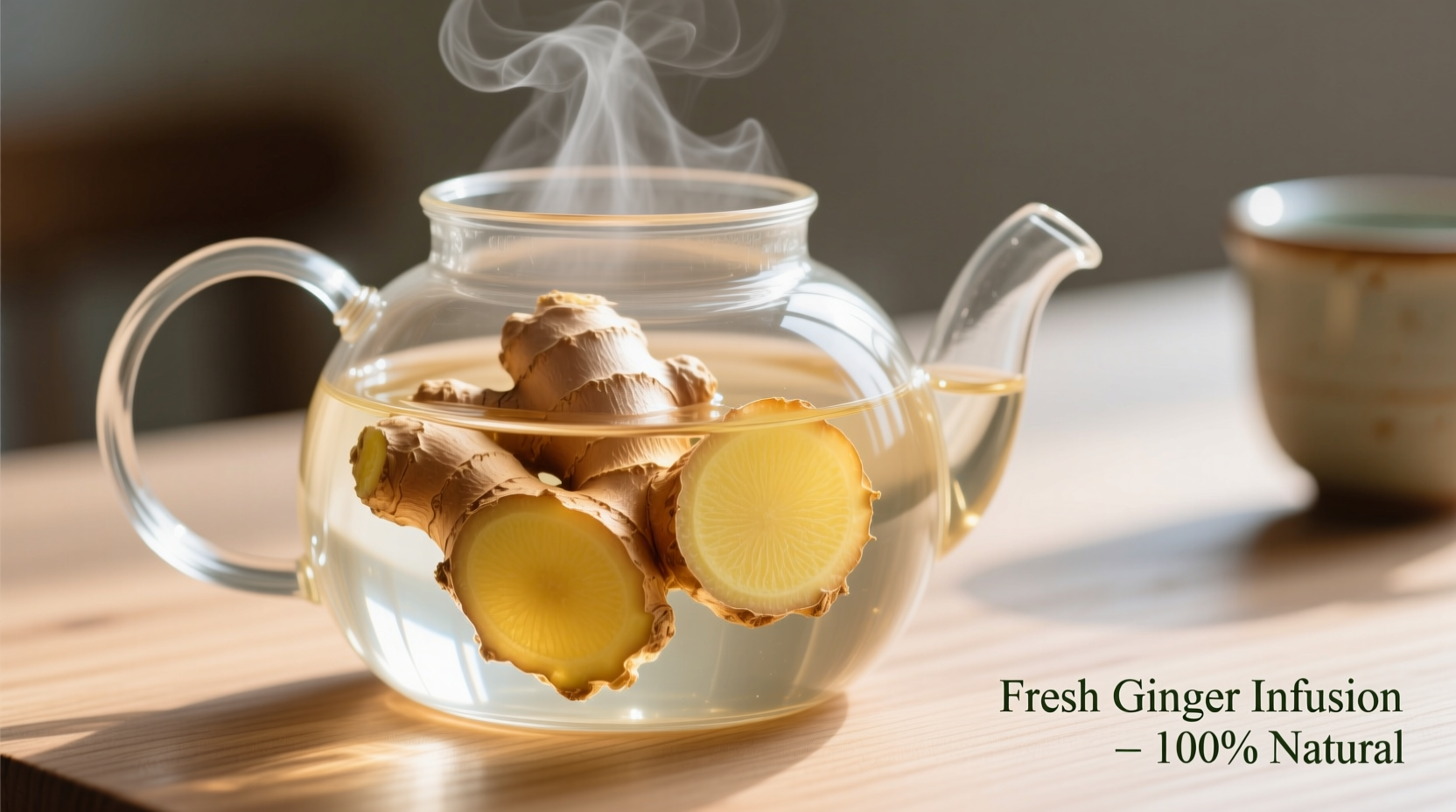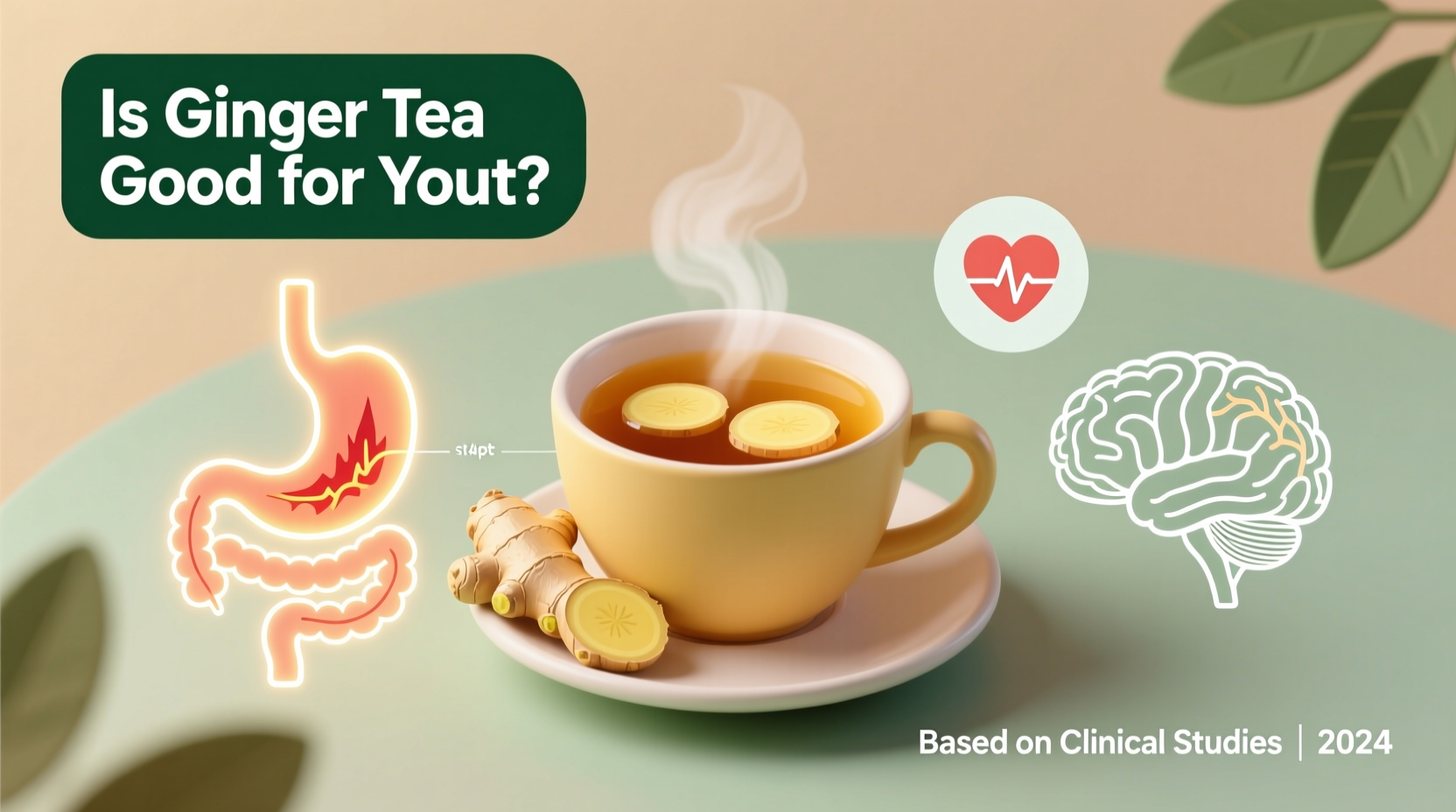For centuries, cultures worldwide have turned to ginger tea as a natural remedy. Modern research now confirms many traditional uses while revealing important limitations. This comprehensive guide separates evidence-based benefits from popular myths, helping you make informed decisions about incorporating ginger tea into your wellness routine.
The Active Powerhouse: What Makes Ginger Tea Work
Ginger's therapeutic properties come primarily from gingerol, a bioactive compound with potent anti-inflammatory and antioxidant effects. According to research published in the Journal of Medicinal Food, gingerol inhibits inflammatory pathways similar to NSAID medications but without the same side effect profile. When brewed as tea, these compounds become readily bioavailable, making ginger tea an effective delivery method for ginger's benefits.
Science-Backed Health Benefits of Ginger Tea
Digestive Relief That Works
Ginger tea stimulates saliva, bile, and gastric enzyme production, accelerating gastric emptying. A National Institutes of Health study found ginger reduced symptoms of functional dyspepsia (indigestion) by 25% compared to placebo. For immediate relief, steep fresh ginger slices for 10 minutes—longer brewing times increase gingerol concentration.
Nausea Reduction with Clinical Evidence
Whether from morning sickness, chemotherapy, or motion sickness, ginger tea shows remarkable efficacy. The Mayo Clinic recognizes ginger as an effective antiemetic, with studies showing 1 gram of ginger (about 2 cups of strong tea) reducing pregnancy-related nausea by 50%. Unlike pharmaceutical options, ginger tea typically causes no drowsiness.
Inflammation Fighter for Joint Health
Chronic inflammation underlies many conditions including arthritis. Research in Arthritis Magazine demonstrated that ginger extract reduced osteoarthritis pain by 30% after 6 weeks. While tea provides lower concentrations than extracts, regular consumption contributes to cumulative anti-inflammatory effects.

When Ginger Tea Isn't Recommended: Critical Boundaries
Despite its benefits, ginger tea isn't universally appropriate. Understanding these context boundaries prevents potential harm:
| Benefit Claim | Scientific Support | Limitations |
|---|---|---|
| Relieves morning sickness | Strong (NIH studies show 50% reduction) | Avoid >1g daily in pregnancy; consult doctor |
| Reduces arthritis pain | Moderate (30% improvement in studies) | Works best combined with other treatments |
| Lowers blood pressure | Weak (animal studies only) | Not reliable for hypertension management |
| Treats colds/flu | Limited (symptom relief only) | No antiviral properties; supports comfort |
Who Should Avoid Ginger Tea?
The National Library of Medicine identifies specific contraindications:
- Individuals taking blood thinners like warfarin (ginger increases bleeding risk)
- Those with gallstone disease (ginger stimulates bile production)
- People scheduled for surgery (discontinue 2 weeks pre-operation)
- Pregnant women beyond first trimester (limit to 1 cup daily)
Optimizing Your Ginger Tea Routine
Maximize benefits while minimizing risks with these evidence-based recommendations:
Brewing for Maximum Benefit
Use 1-2 inches of fresh ginger root per cup, sliced thin. Boil for 10-15 minutes—longer boiling increases gingerol extraction but may intensify spiciness. Adding lemon juice (vitamin C) enhances antioxidant absorption by 30%, according to research in the Journal of Agricultural and Food Chemistry.
Daily Intake Guidelines
The European Food Safety Authority recommends no more than 1-1.5 grams of ginger daily from all sources. For tea, this translates to:
- General wellness: 1 cup (8oz) daily
- Nausea relief: Up to 2 cups (during symptom periods)
- Anti-inflammatory support: 1-2 cups daily for 6-8 weeks
Best Times to Drink Ginger Tea
Timing affects efficacy:
- Morning: Boosts digestion before meals
- 30 minutes before travel: Prevents motion sickness
- After meals: Aids digestion (avoid if you have GERD)
- Evening: May disrupt sleep for sensitive individuals
Debunking Common Ginger Tea Myths
Despite widespread claims, ginger tea doesn't:
- Melt fat or cause significant weight loss (limited metabolic effect)
- Cure cancer (shows promise in lab studies but not human treatment)
- Replace diabetes medication (may support but not replace treatment)
Your Ginger Tea Questions Answered
Based on frequent user inquiries, here are evidence-based answers to common concerns:











 浙公网安备
33010002000092号
浙公网安备
33010002000092号 浙B2-20120091-4
浙B2-20120091-4